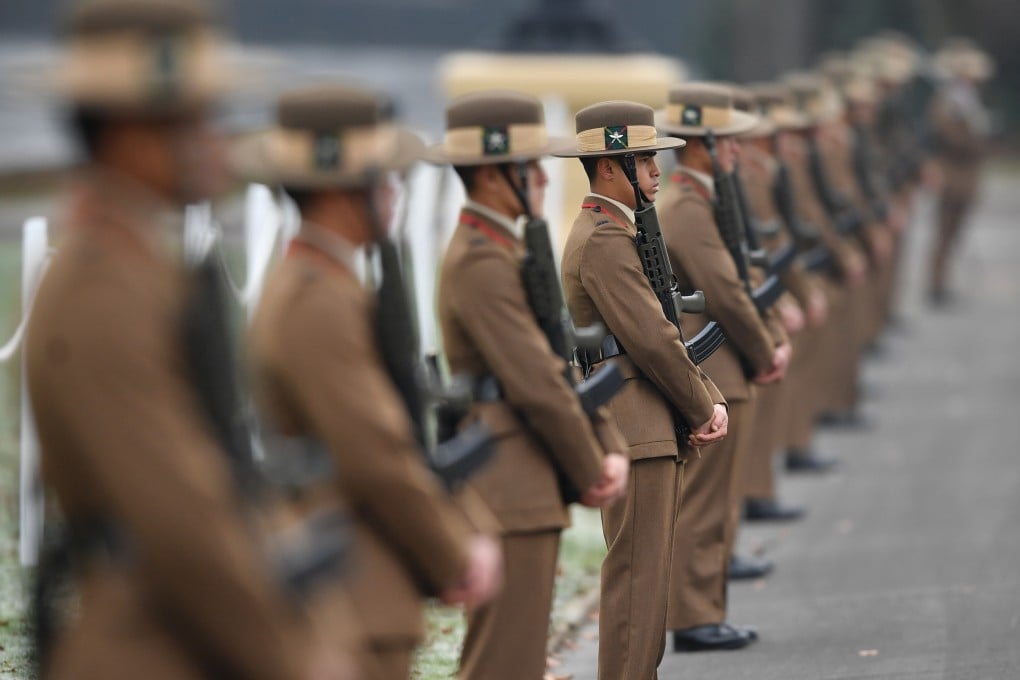Britain and India want Gurkha women to fight in their armies. Nepal’s not so sure
- The coronavirus is only the latest problem to befall plans by both countries to enlist Nepali women into the elite regiments
- While some argue the policy could be an economic boost for Nepal and a victory for equality, the public is increasingly asking whether young Nepalis – whatever their gender – should be fighting other countries’ battles

The Gurkhas are known for being among the most feared fighting men in the British and Indian armies. And, if London and New Delhi have their way, they could soon be known for being the most fearsome fighting women too.
Both Britain and India had hoped that their long held ambitions to enlist Gurkha women in their militaries would finally bear fruit this year, but with little more than three months to go before the end of 2021 both countries face an uphill battle to hit that target.
With the coronavirus ravaging Nepal and the emergence of a new government led by Sher Bahadur Dueba of the Nepali Congress that is perceived to be against the move, both countries have had to shelve their plans, at least for now.
Some of the toughest opposition has come from the Nepali public. While some see the plans as a boost for both gender equality and the Nepalese economy, others argue the practice of sending off many of their best young people to fight for other countries is an anachronism that – after more than 200 years – should have been put to the sword long ago.
Not helping matters for Britain in particular are that images of Gurkha veterans going on a “fast-unto-death” hunger strike in London this August remain fresh in the mind. The 13-day protest by a contingent of ageing Gurkhas seeking pension equality with their British former brothers-in-arms captured the attention of the world’s media and will not have been a good recruitment advert for the British military. Cynics suggest this may explain why, after so many years of intransigence, London finally caved in and agreed to hold formal talks between the two governments and Gurkha veterans’ representatives in a process that will culminate in December.
Then there are the legal obstacles either Britain or India would face before being able to recruit Gurkha women. Some experts say that the 1947 treaty signed by Nepal, India and Britain that led to Gurkha men fighting for the two foreign governments would need to be amended to cover Gurkha women. And that would require the Nepalese government to come on side – something it has so far shown little sign of doing.
However, if such problems can be overcome, proponents of the policy say that it could help boost an economy where nearly one in five youth aged between 15 and 29 is unemployed.